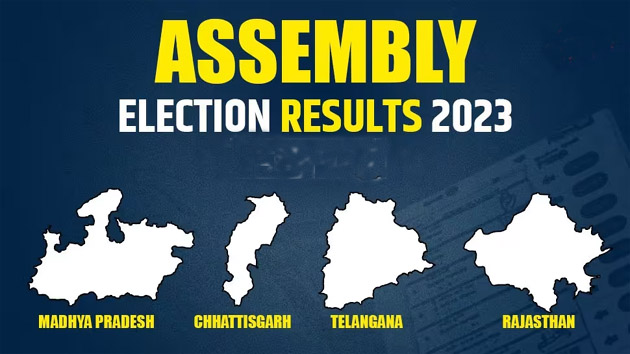Dr Satwant Singh Rissam
The results of the last assembly polls in 2023 are out. You know the poll winners of these five states now. Let’s ask ourselves a question: we saw winners were celebrated on counting day, what will happen to those who lose? Nothing much, they all will be back in some years/months with a newly designed political plan to celebrate and promise us that this time they will make our communities great! Leaders even if they are repeatedly rejected survive in the party even if the party is not being run as a “family limited company”. I say so because if we go through and analyze the past political trends we find that once the official voting is done and results are out, all parties only plunge into introspection to find the reasons for defeat but they never work to bring out new leaders. Why they don’t? Because the nominations are done by the parties themselves. The local leader only seeks votes in the party’s name and when results aren’t positive, the party’s credibility too gets challenged.
The demand for new leaders doesn’t happen in Indian democracy but this isn’t rare in other parts of the world. In Western countries, poll-drubbing means that party leaders should take responsibility for the defeat and must quit their positions within the party and make way for new talent and new ideas. No more election defeats impact the existing political order in India these days. However, if we go two decades back things were very different. After the defeat in 2005 Atal Behari Vajpayee retired from politics and so did LK Advani in 2009. Such retirement or resignations are rare in any political party now. The reason for this change is the growth of a ‘high command culture’ in the Indian political system. An example is the statement given by former Punjab Congress leader & now BJP’s Punjab chief Sunil Jakhar when he revealed that the appointment of Punjab CM Charanjit Singh Channi was made because the Congress high command wanted to install Channi.
These days only an attempt is made to gauge the sentiments of local voters and any backbencher can become CM now. If we see it otherwise, voters don’t get new choices and the same old faces are allowed to survive in India’s politics. Let’s talk of BSP chief Mayawati, who has been facing consecutive defeat for almost a decade. Still, she remains the party supremo. Due to this trend, younger and new leaders with newer energies are impossible to find. An endless rotation of the same ruling elites continues in political parties and because of this many voters prefer not to vote in elections. This approach doesn’t make sense as different generations of people have different expectations and constantly making leadership changes will make sense for the voting patterns of the young generation. The supreme leaders in every party are defeat-proof and give shape to non-elected autocracy in political parties. An alternate political emerging force like AAP too has joined this club of politicians.
Now is the time to introduce and support reducing the ‘political lifecycle’ of leaders who face defeat and are rejected by the voters. Political parties should demand accountability from every local leader. After an election defeat, every politician should sit out and immediately create space for new leaders to emerge at the forefront to end the repeating of the same ruling elites. In many ways, politics has changed in India since 2014 and some extraordinary shift is needed to bring much younger people into politics to end all partial measures taken after poll results. A vital point to bear in mind to work on this trend will be to understand issues that were “then” and “now” to impact the economic, social, and political interests of younger generations. The political parties need to understand and listen carefully to generational patterns coming in India and break from previous patterns.


